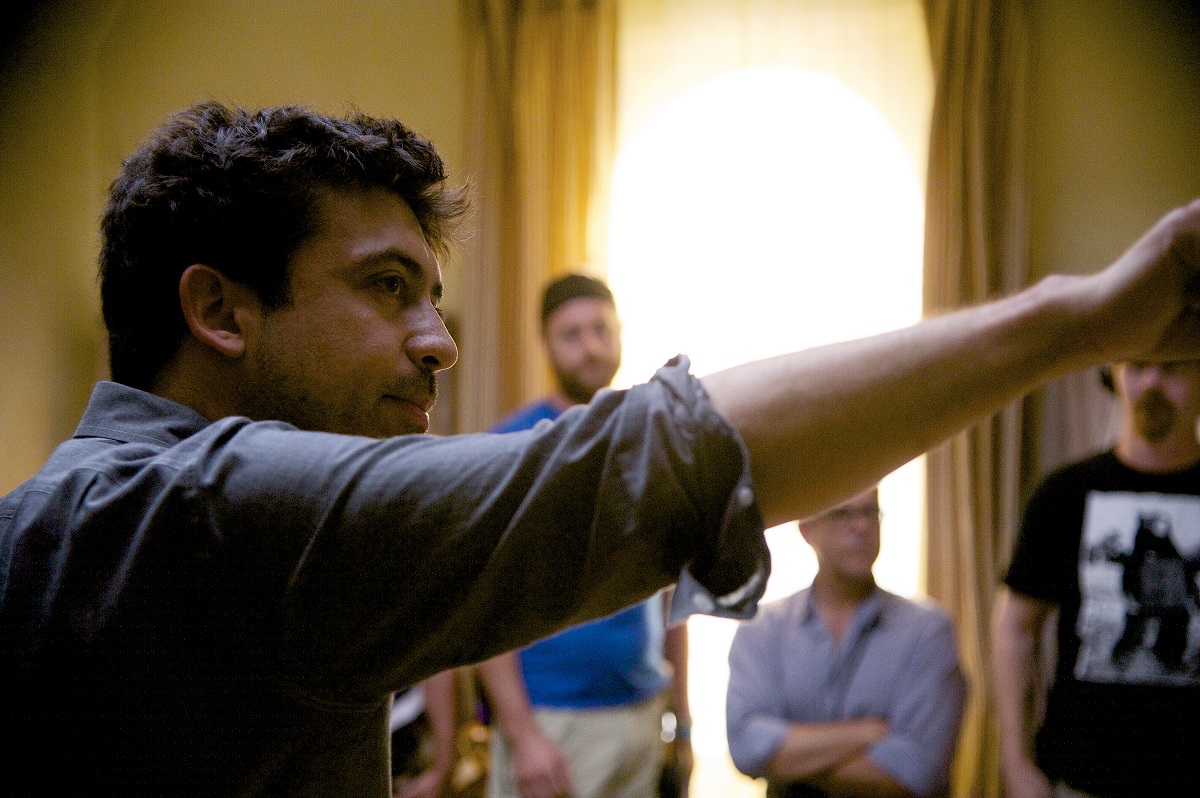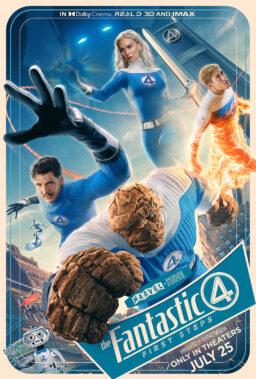Alfonso Gomez-Rejon had quite a Sundance. His sophomore
outing, “Me and Earl and the Dying Girl,” went into this year’s fest a
relatively unknown commodity. It came out the biggest film from Park City,
complete with a distribution deal from Fox Searchlight that puts it into
theaters tomorrow, June 12th. The divisive film tells the story of
Greg, an emotionally defensive young man who watches his mechanisms crumble
when he’s forced to deal with the reality of death. While the film is based on
a novel by Jesse Andrews, the powerful impact of cancer is one to which
Gomez-Rejon directly related, having lost his father to the disease. He took that
personal pain and channeled it into a film about creativity and the
life-changing events that often force us to come of age. He recently sat down
with us on a whirlwind tour to talk about artistic expression, genre-jumping,
and the difficulty in talking about something so deeply personal.
Let’s start with the film’s emphasis on artistic expression—both
that of Greg & Earl and Rachel’s—and why creativity and art is important to
you.
I’ve been on the receiving end of that and I’ve felt it in
movies. You feel Scorsese in every movie. You feel who he is and that he’s
trying to say something. Whatever that is and those movies change with you. You
think “After Hours” is about one thing and then you turn 40 and it’s about
something else. They change with you. I felt the human being on the other end
before but I’ve never had the opportunity to do that. I had something to say
and I was given the opportunity to say it and express it in ways like…how do
you get that thing out of your system when it’s so abstract? This person is
there and then not there and you have to just move on with your life. Luckily,
I got Jesse’s incredible script and thought I could give this a shape and talk
about it and deal with it and express it in a movie. The making of it is an
even different high. You feel a different connection. And you’re changing with
it. It’s so hard to go through and you think about who you were at the
beginning of the film and then the making of the film and where I am today. And
it’s a document of who you were at that particular time. Even when I was doing
the commentary, and it was my first commentary ever, I realized that who I was
when I started making the movie was different than at the end or where I am
today. And part of that is because you’re forced to talk about it. You don’t
talk about it.
It’s an emotional process while you’re making it that
becomes a more intellectual one when you’re forced to talk about it so much
afterwards?
You have to articulate it in a way. But even the way I got
the job was I made a reel. You’re expressing yourself in a different way.
Sometimes talking about it, you discover things about it. During Sundance, you’re
forced to do press. The first day, I could barely finish a sentence. “What is
the movie about?” “This f—king kid in high school. I don’t know.” Then the
movie screens with your dad’s dedication and something that has been so private
is now as public as anything and you have to talk about it. How do you make a
soundbite out of it? It’s OK. It’s now an extension of the theme of the movie.
How do you avoid something so personal not getting
repetitive when you talk about it over and over again?
Questions like “Tell us about the movie” are hard. But when
I look at you and I know that you like the movie, I’m just talking to you. I’m
not going to worry. I don’t make it a conscious thing. These are, I think,
genuine questions that are different from someone else’s, so…
Friends often ask me how people do the same interviews all
day and then the next day in different cities. And I say, “I’m sure sometimes
they say the same things…”
Certain questions will get you the same answers.
How do you keep it interesting to yourself?
I like people. (Laughs.)

Much of the success of this film comes down to casting, so
how did you find the right three leads?
It had to be right. It’s this energy flow that stops if there’s
too much sexual chemistry between Thomas and Olivia OR RJ and Olivia. Olivia
auditioned with some other people and it wouldn’t feel right and you’d look at
the tape and be like, “You guys are gonna kiss in five seconds.” The camera
picks up different things. So it was about finding actors who had the gift of
naturalism and effortless comedy without trying to sell the joke. Also
realistic expressions of a 17-year-old. Sometimes young actors act too much
like adults. You see the confusion here with such subtlety that’s coming-of-age
specific. Earl came of age already. He’s the man of the house. She has a shift
where she takes control of her own life. She’s legally turned of age during the
movie and can make her own decisions. Olivia and I had a chart of the five
stage of chemo. And then there’s Greg, crawling on the floor at the beginning
and walking at the end. He’s on his journey. You needed actors who could do
that. They felt the characters. They got it. Thomas went through so much hell
to get the job. He came back over and over and over again because I just had to
make sure. I was going to put so much of myself on the screen.
How do you avoid making the film too maudlin and
manipulative, which you easily could do with this subject matter?
It was my biggest fear. I know how I wanted it to feel. If I
wanted to find comfort in this movie—if I had something to hold on to when I
was going through it. I wanted to find that comfort and capture the purity of
that feeling. I didn’t want it to feel manufactured. It all starts in the
casting. And then the text, of course. And then the humor. In the directing,
you gauge it and play around. There are key shifts that I was certainly nervous
about. And then the score by Brian Eno. He’s just finding that thing that would
tip it in one direction.
And the visual choices are essential I think in that it’s
not gauzy, Vaseline lensed melodramatic choices but unique camera angles that
push against the emotion. Speak a little bit about Chung’s choices.
Chung was not the obvious choice, obviously. And neither was
I. I was the horror guy and he was the Park Chan-wook guy. When I heard that he
was interested, I was like “Really?” We Skyped and he was very funny. He had a
translator—he has one around but he doesn’t really need it—and he’d say
something in Korean and his translator would just crack up laughing. I realized
how funny this guy was. He liked some of the stuff I was doing; I loved his
stuff. So we both knew without saying it that we both loved the camera. We get
it. He talked a lot about John Hughes. He only talked character. Never technique.
This feels right, we have to go with it. We had a blast. We felt so safe to
come up with the craziest camera moves. We had stuff that was so outrageous.

You’re opening against “Jurassic World.” What are your
expectations?
Can’t think about that. Zero expectations. I had zero going
into Sundance. I want people to see the movie, obviously, and I know that Fox
Searchlight is doing an amazing job. I did my best with the film. I’m doing my
best out here to support it. They’re embracing the film for what it is. At some
point, the Gods decide. It’s nice that the work of everybody involved is being
recognized. That matters.
You just called yourself a “horror guy” but it seems to me
that your resume hints at someone who wants to jump genres as much as possible.
If you look into your crystal ball for the next 20 years, what kind of films do
you see yourself making? Are there certain kinds of films that interest you more
than others?
It’s funny. I never thought I’d be making horror films even
though my first short film I made with my friends was called “Death…My Hobby.” And then your career just takes a turn and you’re making “American Horror
Story,” which is very expressive filmmaking and you’re getting high off that.
It was time to go deep and personal. All I can say is that I hope I have the
courage and opportunity to make films that are personal. That have a personal
hook and that scare me to take them on. Before I was a horror guy, I was a
musical horror guy, and before that because of Scorsese I was a gangster guy.
And I’ve written two scripts that took place in Chicago. I would like to jump
genres like most of my heroes do because why not? But hopefully they’re all
personal in some way. As Scorsese said, “If you’re scared, it’s good because
that means you’re growing.” So, hopefully, I continue to be scared.












